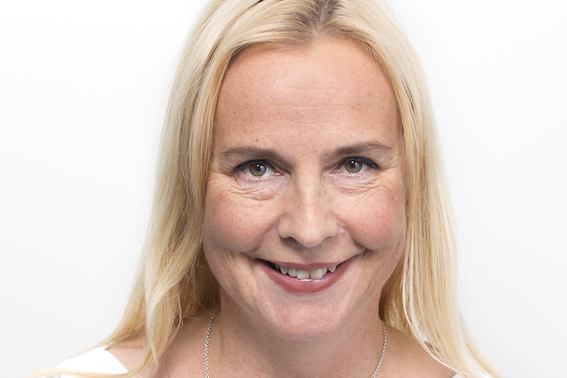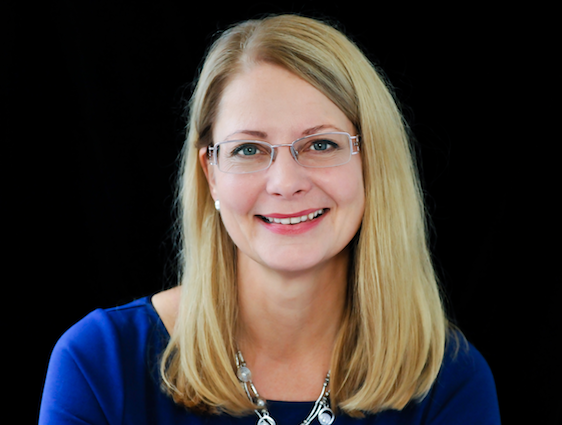
Expert View: Why are large charities scooping the funding pool?
April 19, 2017
How to punch above your weight in fundraising
April 19, 2017With many smaller charities starting to fundraise for the first time in Sweden and rapid advances in the profession, Fundraising Europe interviews Charlotte Rydh, Secretary General of the Swedish Fundraising Council (FRII) about how the sector is changing.
[Fundraising Europe] Having worked in the sector for many years, what are the most notable changes to fundraising in Sweden in recent years?
[Charlotte Rydh] We have a strong fundraising market in Sweden and that continues to grow. Donations to our member charities (who raise around 90% of NGO voluntary income in the nation) have increased over the past year. But, although we’ve seen growth in absolute terms, this is at a lower rate than the increases to people’s salaries or expenditure on goods. So there is more room for growth.
What’s really interesting is how much the sector has developed in recent years. Although I’ve been working in the sector for over twenty years, my last role (at AFS Intercultural Programs) was less fundraising-focused. I’ve now come back to the profession at a time when it is particularly evident just how much and how quickly the sector has developed.
15 years ago there were few fundraisers. Now, it is a profession and people realise that you need to know how to do it. Of course, there have been changes to the methods that charities use for fundraising, but we’ve also seen more of a divide emerging between the largest and smaller fundraising charities.
Here, it is certainly the case that the large NGOs and biggest charities seem to be growing much faster. In Sweden, there are just 20 charities that generate around three quarters of all funds raised, amounting to about 674,000,000 Euros.
What is driving this change?
This divide between large and small charities does seem to be getting bigger and there are several factors at play here. This is partly down to the growth of some really big charities and NGOs, but this is also because many smaller charities are now starting to fundraise for the first time.
Growth in NGOs is often accelerated because they share their learning and development across the organisation and internationally. As for smaller charities, up until recently they typically hadn’t asked the public for funds. Instead, they relied on getting grants from government authorities. But – as competition gets tighter for those funds and with statutory cuts – that is now changing.
We’re now discussing what that means for FRII and how we can better support these smaller charities with their fundraising.
What do the public think? How do they perceive charities and NGOs in Sweden?
Once a year, we measure general trust in charitable organisations. On the whole, trust is pretty stable; around 77% of people have a positive opinion of charities and NGOs. Research shows that women, as well as highly educated and top earners, are more trusting than other groups.
But it’s really important that we keep a close eye on this. We’re all too aware that even one isolated incident of fraud or bad fundraising can have quite a devastating and long term negative impact on the brand.
Despite relatively stable trust measures, we have seen some uncertainty among supporters and they ask more questions than they did in previous years. Does the money they give actually reach beneficiaries? Are charities using money as efficiently as they could be? What is the impact of their work and are they using charitable reserves appropriately?
This uncertainty was particularly noticeable around 18 months ago during the refugee crisis, when there was so much engagement in the cause, but the public felt that charities and government weren’t moving fast enough. They took matters into their own hands and raised large sums of money off their own back.
In many ways, this is what civil society is all about; findings ways to meet a need and to enable people to help others. Usually that means using established channels, but sometimes people just want to do it themselves and this can be a good thing. We have to find ways of including engaged supporters in our fundraising.
After all, this is how many charities are formed. Typically, they have been started up by the public to meet a need and then developed to the point at which they need a more formal structure and become charities.
What are the implications of this for fundraising?
Government has very little interest in the sector at the moment – largely because things are going well. This means that there is very little regulation in Sweden for civil society. Instead, it is what we at FRII do that provides some sort of regulation, together with the work of the Swedish Fundraising Control, which provides a unique banking system for registered charities that is instantly recognisable to the public. So, we have to look ahead and be proactive, ensuring our guidance for the sector addresses the issues that the public might be concerned about.
There is a real need to offer a deeper level of engagement to supporters and to offer clear answers to supporters’ questions in our communications. not just in fundraising but all communications. We are well aware that if people don’t get the information they need, trust might fall and that would of course affect fundraising.
As fundraisers, we have a tendency to think that we communicate quite well with supporters, but it seems as if we are not always getting through. We also need to be aware of the way we talk, shifting our language from more salesy asks for funds to a focus on the donor and their opportunities to give. This means thinking about the words we use internally as much as externally. Inevitably, the way we talk within the organisation colours how we communicate externally. We need to get this right.
For smaller organisations, things can be different. Typically, they have a lot of engagement at a local level and they have a different set of challenges.
What are the challenges for smaller community-based charities?
The real challenge for these smaller charities, new to fundraising, is a lack of understanding of the need to have the right infrastructure and of the need to invest properly in setting that up and to find people that have the right skills to do it. Even though there has been huge growth in fundraising skills and expertise in recent years, recruiting experienced fundraisers and developing their skills is an ongoing challenge.
This is particularly prominent for smaller charities of course as larger NGOs have been doing this for much longer and they tend to have a better infrastructure in place. I see that there is a real need for FRII to provide more support for smaller charities as they adapt to becoming fundraising organisations.
What does the Swedish Fundraising Council do to support charities large and small?
A major part of what we do is delivering the Code of Quality; a resource that sets the bar for standards of governance, transparency, internal policies, financial issues and fundraising activities.
And when it comes to training and support for charities, traditionally we have worked with many of the bigger organisations. Times are changing and we are now keen to support the clusters of smaller charities working in similar fields, helping them get started with fundraising and providing more tailored support that responds to their specific challenges.
About Charlotte Rydh
Having started out in higher education, Charlotte first began fundraising professionally twenty years ago. While her focus has been primarily in major gifts, she has worked with a range of charitable causes, including healthcare, research, higher education, young people and the arts. She joined the Swedish Fundraising Council as its Secretary General in September 2016. Charlotte is also on the Board of EFA and its Certification Committee.




